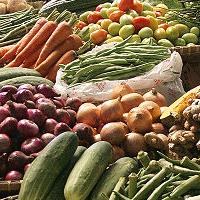(BRUSSELS) – After 20 months of discussion, EU Parliament and Council negotiators reached an informal agreement Wednesday on an overhaul of existing EU rules on organic production and labelling of organic products.
The agreed regulation – which follows three years of intense negotiations and still needs formal endorsement from Council and Parliament – sets more modern and uniform rules across the EU with the aim of encouraging the sustainable development of organic production in the EU.
The agreement comes with demand for organic products on the increase throughout Europe. Organic farmland has more than doubled in the last decade and each year 500,000 hectares of land are converted into organic production.
The rules aim to guarantee fair competition for farmers and operators, unlocking the potential of the organic sector, prevent fraud and unfair practices and improve consumer confidence in organic products.
The new rules will:
- make the life of organic farmers easier by enhancing legal clarity and allowing for further harmonisation and simplification of production rules. A number of past exceptions and derogations will be phased out subject to relevant Commission reports.
- increase consumer confidence by strengthening the control system. Preventive and precautionary measures have been clarified and made more robust (e.g. the roles and responsibilities of the different controlling bodies). The new regulation introduces checks on retailers and a risk-based approach to controls, thus reducing the administrative burden for operators in general and SMEs in particular. Specific controls on organic farming will be complemented by the recently introduced rules on official controls along the agri-food chain.
- make competition between EU products and imports fairer. The ‘compliance system’ will become the rule as regards the recognition of the private control bodies in third countries. This means that these bodies will have to comply with EU production and control rules when deciding whether a product to be exported to the EU market is organic or not. Furthermore the development of new trade agreements with third countries will enable EU operators to find new market opportunities outside of Europe.
- enlarge the scope of organic rules to cover a wider list of products (e.g. salt, cork, beeswax, maté, vine leaves, palm hearts) and additional production rules (e.g. deer, rabbits and poultry).
- support small farmers by introducing a new system of group certification. This will make it easier for small farmers to switch to organic farming by reducing inspection and certification costs, as well as the related administrative burden.
- provide a more uniform approach on pesticides. The new regulation harmonises precautionary measures thereby enhancing legal security. At the same time, it builds flexibility in the case of measures to be taken in the presence of non-authorised substances to take account of the different situations of different member states. This means that those countries already having in place national rules establishing thresholds for non-authorised substances will be able to maintain them. Four years after the entry into force of the new rules the Commission will come forward with a report assessing national rules and practices in the field and may also table a legislative proposal to further harmonise rules concerning thresholds for non-authorised substances.
- phase out derogations for production in demarcated beds in greenhouses. Farmers utilising demarcated beds in greenhouses up until 28 June 2017 in Denmark, Sweden and Finland will be able to maintain this practice for 10 years. In the meantime the Commission will assess the compatibility of this practice with the principles of organic production and in light of the result of this analysis, it may table a legislative proposal.
Agreement needs now to be approved by the Council’s Special Committee on Agriculture (SCA). After formal endorsement by the Council, the new legislation will be submitted to the European Parliament for a vote at first reading and to the Council for final adoption.
The new regulation will apply from 1 July 2020.
Further information, European Parliament
EP Research: Organic food – Helping EU consumers make an informed choice (May 2015)



